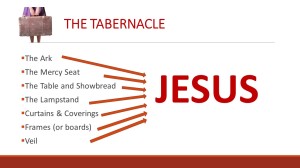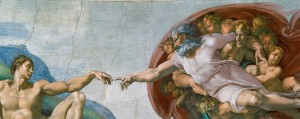 Also put the Urim and the Thummim in the breastpiece, so they may be over Aaron’s heart whenever he enters the presence of the LORD. Thus Aaron will always bear the means of making decisions for the Israelites over his heart before the LORD.
Also put the Urim and the Thummim in the breastpiece, so they may be over Aaron’s heart whenever he enters the presence of the LORD. Thus Aaron will always bear the means of making decisions for the Israelites over his heart before the LORD.
Exodus 28:30
As God continues to provide the blueprints for the Tabernacle to Moses, He also gives instructions for the priestly garments to be worn by Aaron and his sons who will serve. The “Urim and Thummim” are found only a handful of times in Scripture and they are first mentioned here in Exodus 28 as part of the wardrobe for the priests.
Their purpose was to assist Aaron in making decisions. Some commentators have suggested they could have been one black and one white stone – and whichever the priest pulled out would provide the answer. Others put forth the idea of special stones that might shine in just a certain special way to provide the sought-after answer.
But these are only possibilities and ideas – we cannot know for sure because God does not reveal it in the Scriptures.
What we do know is they were the means of making decisions. Perhaps you read that and think, “I would love to have a decision aid like the Urim and Thummin to pull out when I need it!”
Are there weighty decisions to be made in your life today? They may be financial, medical, relational, or vocational. Some are fairly straightforward – those times we know what we should do, but just keep dragging our feet because of the painful consequences or time required to walk in obedience. It’s not so much knowing what is right—it is the doing of it.
Other times, we just are confounded by the best course of action. What is the right thing to do in the situation? Where is that Urim and Thummim for the 21st-Century believer?
We have something better than Urim and Thummim.
We have the Holy Spirit.
And rather than living over our heart (where Aaron kept his decision maker), we are blessed to have the Holy Spirit abiding within our hearts.
As followers of Christ, we can look to the Holy Spirit to provide illumination for the decisions we must make. We can also ask Him for the courage to follow through with the guidance He provides.
Would you pause now and ask the Holy Spirit to be your decision maker in the weighty decisions you are facing today?







